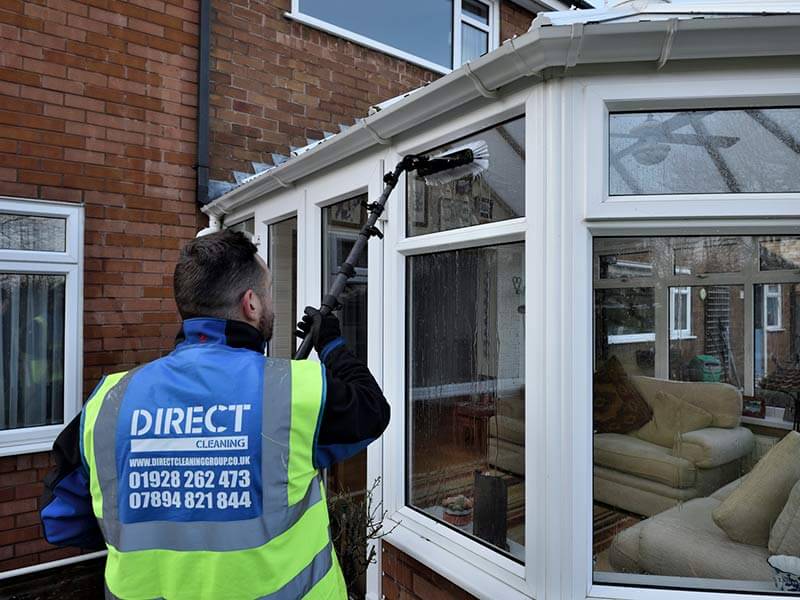
Cleaning windows can be one of the most tedious household chores but once your windows are clean, clear and gleaming in the light, its all worth it. However, a problem that many people encounter when cleaning their windows is streaks. It is very easy for streaks to appear but equally, there are simple ways of avoiding this issues. There are number of tips, techniques and alternative cleaners at hand to help you avoid streaks which we will be discussing here.
Distilled water is definitely something that the majority of us wouldn’t think to consider when it comes to cleaning windows, but it is the water of choice for any professional window cleaner. Streaky windows can often be as a direct result of the water you’re using and for the majority, that is the water from your tap. Depending on where you live you, you may have ‘hard’ tap water which has a very high mineral content. This is why you will see residue when you’ve cleaned your windows, as the minerals such as calcium and salts of magnesium will dry upon the surface. You will also notice the hardness of your water if your kettle frequently requires de-scaling from excessive limescale build up.
Hard water will often hinder the effectiveness of cleaning products that you are using to clean your windows causing them to leave a streaky residue behind. There are however ways to distil your water either by purchasing distilled water which isn’t the most cost effective solution or by using a home distiller for your tap water, a slightly more affordable alternative.
Vinegar is the age-old solution to window cleaning that you may remember from when you were young. A piece of newspaper and vinegar would quickly do the job and leave streak free windows. However, when working with a larger surface area of windows, you may not have the time and energy for this. Fortunately, white vinegar is still a solution if you’re still struggling with streaks after using distilled water, as in this instance the issue may lie with your glass cleaner.
Simply mix white vinegar that you can find in any supermarket with soft water and you can use this solution as a cleaner or to wash down windows after you’ve removed a particularly stubborn area of grime. The only issue you may encounter is the strong odour from the white vinegar which may not be the best smell, particularly on your indoor windows.
Using too much soap can quickly be a recipe for disaster when it comes to cleaning your windows. We often believe the more soap, the easier it will be to clean away any dust, dirt and grime when in fact it will do the opposite. Excessively soapy water will cause streaks to be left and make your windows look dull and cloudy. When making a mixture of soap and water, you will only ever require a few drops of dish soap to create a cleaner that will successfully cut through any dirt on your windows.
You wouldn’t see a professional window cleaner using kitchen roll to clean windows, so why should you? Not only is this wasteful, it can also leave your windows in worse condition with lint, dust and streaks coating the glass. Having the right tools is key to ensuring you achieve streak free, gleaming windows which is why it is recommended to use microfibre cloths, scrubbers and rubber blade squeegees. Each of these tools is perfect for window cleaning as they help to remove dirt without leaving residue or lint in their wake.
If all else fails, why not consider calling in a professional to get the job the done! With the right window cleaning team, you can be sure that your windows will be sparkling without any residue or streaks leftover. Professional window cleaning services will be able to safely and efficiently clean your windows even in the hard to reach places, leaving your windows looking brand new.
At Direct Cleaning Group, we are the leading experts in our field offering state-of-the-art window cleaning services. To find out more about our window cleaning services or to request a quote for cleaning your windows, contact Direct Cleaning today.
